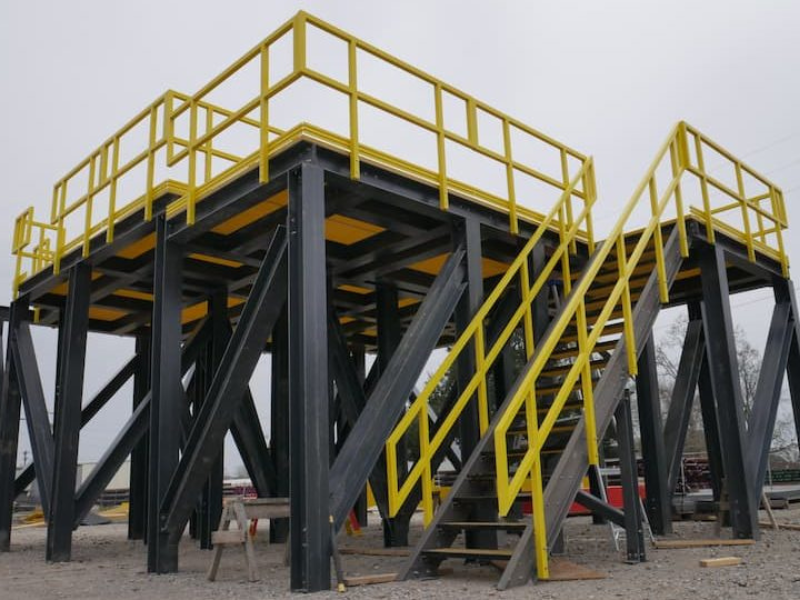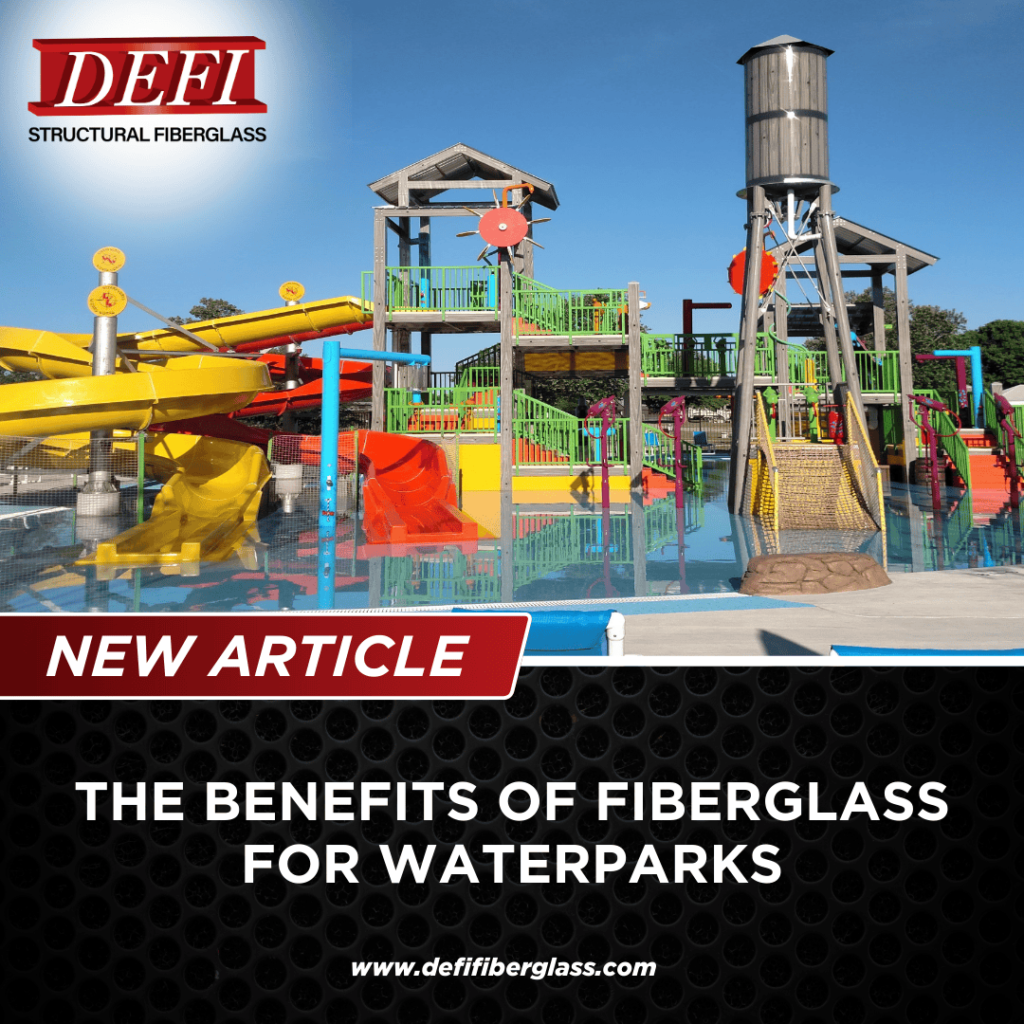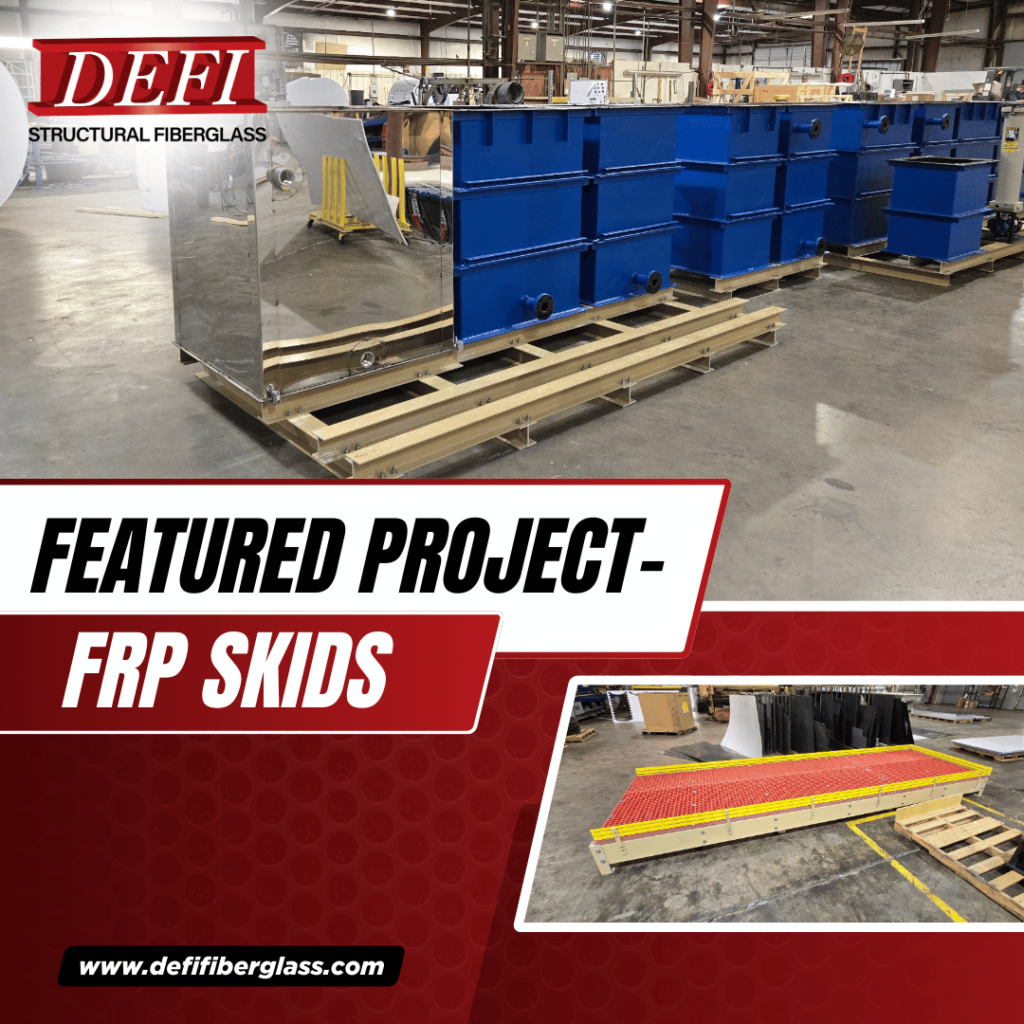FRP & Fiberglass FAQs
Discover more about FRP and Fiberglass in the FAQs below. Still have questions? Reach out to our team—we’re here to help!
FRP stands for Fiber Reinforced Polymer (or Plastic). It’s a combination of fiberglass strands (for strength) and resins (corrosion resistance). There are different types of FRP products; DEFI specializes in structural fiberglass.
Simple hand tools are the most common and easiest, such as circular saws, grinders and jig saws. No specialized equipment is needed to work with FRP. Structural Fiberglass is easy to assemble with wrenches and drills as well. Don’t forget to seal all cut edges with a resin to coat any exposed fiberglass strands.
Structural fiberglass has the strength of steel at a fraction of the weight and is pound for pound just as strong as steel. In some cases, as in the design of a platform for instance, fiberglass might need an additional support, but because it is 1/3 the weight of steel it will still be lighter than steel. It is not a one for one in many cases.


Simply, none. FRP will not rot or corrode. It does not need painting or a re-coating as its counterparts in steel.
DEFI is built on the concept that you should not have to wait weeks to receive your materials once an order is placed. Although it varies from one project to the next, having our own fabrication shop with material in stock in Houston, TX and Lafayette, LA enables us to move projects around to meet your needs.
It is really describing the manufacturing process. Molded Grating is manufactured in an upside-down waffle iron. Pultruded Grating is manufactured by the pultrusion process.
FRP & Fiberglass FAQs
Discover more about FRP and Fiberglass in the FAQs below. Still have questions? Reach out to our team—we’re here to help!
FRP stands for Fiber Reinforced Polymer (or Plastic). It’s a combination of fiberglass strands (for strength) and resins (corrosion resistance). There are different types of FRP products; DEFI specializes in structural fiberglass.
Simple hand tools are the most common and easiest, such as circular saws, grinders and jig saws. No specialized equipment is needed to work with FRP. Structural Fiberglass is easy to assemble with wrenches and drills as well. Don’t forget to seal all cut edges with a resin to coat any exposed fiberglass strands.
Structural fiberglass has the strength of steel at a fraction of the weight and is pound for pound just as strong as steel. In some cases, as in the design of a platform for instance, fiberglass might need an additional support, but because it is 1/3 the weight of steel it will still be lighter than steel. It is not a one for one in many cases.

Simply, none. FRP will not rot or corrode. It does not need painting or a re-coating as its counterparts in steel.
DEFI is built on the concept that you should not have to wait weeks to receive your materials once an order is placed. Although it varies from one project to the next, having our own fabrication shop with material in stock in Houston, TX and Lafayette, LA enables us to move projects around to meet your needs.
It is really describing the manufacturing process. Molded Grating is manufactured in an upside-down waffle iron. Pultruded Grating is manufactured by the pultrusion process.

Learn More on Our Blog



Comprehensive Guide to DEFI Fiberglass Products & Services
Learn More on Our Blog



